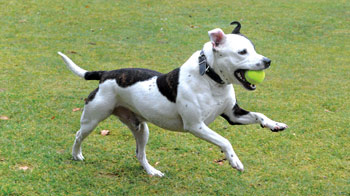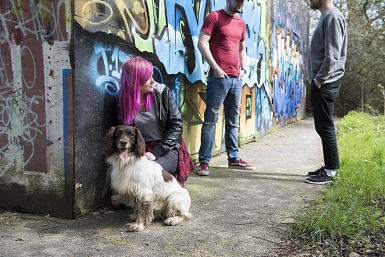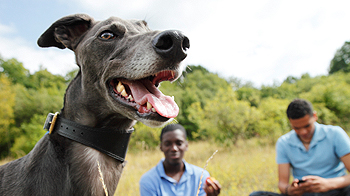Young people and dogs
We have worked with Youth Offending Teams (YOTs) across the country to develop groundbreaking resources to help young people address the problem of status dogs and animal cruelty.
YOT workers told us what types of activities and language their clients would respond to and, with their guidance, we set about developing a brand new set of activities for them to use with young people.
Facilitation guides
To complement these activities, we now have eight new facilitation guides which deal with the most important issues relating specifically to young people and dogs:
- Motivations for owning a dog explores the young person's motivations for owning - or wanting to own - a dog.
- Encouraging responsible dog ownership develops an understanding of the complex needs of dogs and how to choose and breed dogs responsibly. It also explains how professionals train their dogs using reward-based training and encourages young people to train their dogs in a positive manner.
- Dogs and the law helps the young person to develop an understanding of the laws relating to dogs and to recognise their legal responsibilities as a dog owner.
- Consequences of irresponsible dog ownership uses real-life case studies to explore what the consequences might be of having an aggressive dog or a dog with the potential to be aggressive.
All our facilitation guides can be used in isolation, or as part of a bigger scheme of work. Advice and information on complementary activities is available on each facilitation guide.
You may also find our interactive resource, Breaking the chain, useful when working with a young person who has committed, or who is at risk of committing, an act of cruelty.
Intervention programme
As a guide to which of the sections below to use with the young person, we suggest that you use the online assessment tool Developing a suitable intervention programme (Word 17KB).


